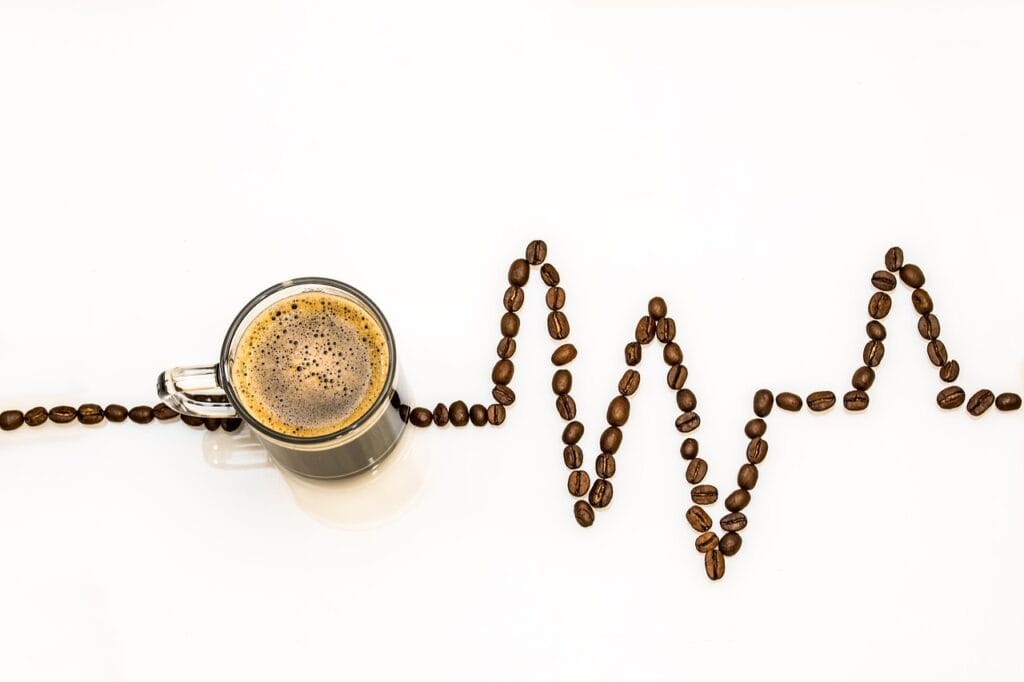Coffee is one of the most popular beverages in the world, known for its rich aroma, bold flavor, and energy-boosting properties. But beyond waking us up in the morning, many people wonder, “Is coffee good for weight loss?” This question has sparked interest among health enthusiasts and researchers alike. In this article, we will explore the science behind coffee and weight loss, uncovering the potential benefits and drawbacks of using coffee as part of a weight management strategy.
How Coffee Affects Your Metabolism
Coffee contains caffeine, a natural stimulant that has been shown to boost metabolic rate. Your metabolism determines how quickly your body burns calories, and a faster metabolism can help you lose weight more efficiently. Here’s how coffee can affect your metabolism:
- Increased Metabolic Rate: Studies have shown that caffeine can increase your resting metabolic rate (RMR) by 3-11%. This means your body burns more calories at rest when you consume caffeine.
- Thermogenesis: Coffee promotes thermogenesis, a process where your body generates heat and burns calories in response to food. Caffeine enhances this effect, contributing to greater energy expenditure.
- Enhanced Physical Performance: Caffeine can improve physical performance by increasing adrenaline levels, which helps you push harder during workouts. This can lead to more calories burned during exercise, supporting weight loss efforts.
Tip: To maximize the metabolic benefits of coffee, consume it plain or with a splash of milk. Avoid adding excessive sugar or high-calorie creamers, which can negate the calorie-burning effects.
Coffee as an Appetite Suppressant
Another way coffee might aid weight loss is by acting as an appetite suppressant. Drinking coffee can help you feel fuller for longer, which may reduce your overall calorie intake. Here’s how:
- Delayed Hunger Signals: Caffeine can delay the onset of hunger by affecting certain hormones that regulate appetite, such as ghrelin, the hunger hormone.
- Reduced Food Cravings: Coffee, especially when consumed black, has been reported to reduce cravings for sugary and high-calorie foods.
However, it’s important to note that these effects can vary from person to person. Some individuals might find that coffee increases their appetite or has no effect at all. Listening to your body is key.
The Role of Caffeine in Fat Burning
Caffeine is one of the main active ingredients in many commercial fat-burning supplements, and for good reason. It has been shown to enhance fat oxidation, making it easier for your body to break down and utilize stored fat as a source of energy. Here’s how caffeine helps with fat burning:
- Stimulation of the Central Nervous System: Caffeine stimulates the central nervous system, which can increase the release of the hormone epinephrine (adrenaline). This hormone signals the body to break down fat cells and release them into the bloodstream to be used as fuel.
- Mobilization of Fat from Fat Tissues: Caffeine increases the levels of cyclic AMP (cAMP), a molecule that helps mobilize fat from tissues, making it available for energy use.
- Increased Fat Oxidation During Exercise: Caffeine has been shown to increase fat oxidation during physical activity, meaning your body uses more fat for fuel instead of carbohydrates.
Quick Fact: Drinking coffee about 30 minutes before a workout can help enhance fat burning and improve exercise performance.
Types of Coffee and Their Impact on Weight Loss
Not all coffee is created equal, and the type of coffee you drink can impact your weight loss efforts. Here’s a look at different types of coffee and how they affect your goals:
1. Black Coffee
- Benefits: Low in calories, rich in antioxidants, boosts metabolism.
- Best for: People who enjoy a simple, calorie-free way to boost energy and metabolism.
2. Espresso
- Benefits: Concentrated caffeine dose, low in calories.
- Best for: Those looking for a quick and potent caffeine fix.
3. Bulletproof Coffee
- Ingredients: Coffee mixed with butter and MCT oil.
- Benefits: Provides sustained energy, promotes ketosis in low-carb diets.
- Drawbacks: High in calories; best used as a meal replacement rather than a drink addition.
4. Flavored Coffees and Lattes
- Benefits: Taste appealing, satisfying.
- Drawbacks: Often high in sugar and calories, which can hinder weight loss.
Tip: To maximize weight loss, stick with plain black coffee or espresso. If you prefer something creamier, opt for unsweetened almond milk or a dash of cinnamon instead of sugar-laden syrups.
Potential Drawbacks of Drinking Coffee for Weight Loss
While coffee can offer several benefits for weight loss, there are potential drawbacks to consider:
- Increased Stress Levels: High caffeine intake can increase stress hormones like cortisol, which is associated with weight gain, particularly around the abdomen.
- Sleep Disruption: Caffeine can interfere with sleep if consumed too late in the day, leading to sleep deprivation, which negatively impacts weight loss and overall health.
- Dependence and Tolerance: Over time, your body may build a tolerance to caffeine, reducing its effectiveness as a metabolism booster. Additionally, dependence on coffee can lead to withdrawal symptoms, including headaches and irritability.
- Digestive Issues: Some people may experience digestive discomfort, such as acid reflux or an upset stomach, from coffee, especially if consumed on an empty stomach.
- Empty Calories from Additives: Adding cream, sugar, or flavored syrups can turn your coffee into a high-calorie beverage that works against your weight loss goals.
Advice: Limit coffee consumption to 2-3 cups per day, avoid drinking it late in the day, and opt for healthier additions like stevia or low-fat milk.
How to Incorporate Coffee into a Weight Loss Plan
To use coffee effectively for weight loss, consider these tips:
- Drink Coffee Before Workouts: A cup of coffee 30 minutes before exercising can enhance your performance and fat-burning potential.
- Opt for Black Coffee or Low-Calorie Additions: To keep your coffee low in calories, stick with black coffee or add a splash of almond milk or a calorie-free sweetener.
- Mind the Timing: Avoid drinking coffee late in the afternoon or evening to prevent sleep disruption.
- Balance with a Healthy Diet: Coffee alone won’t cause significant weight loss. Pair it with a balanced diet rich in whole foods, lean proteins, healthy fats, and plenty of vegetables.
- Stay Hydrated: Coffee is a diuretic, which means it can lead to dehydration. Ensure you’re drinking enough water throughout the day to stay hydrated.
Frequently Asked Questions
Q: Can I drink coffee on an empty stomach?
A: Yes, but some people may experience digestive discomfort. If this happens, try eating a light snack before your coffee.
Q: How much coffee should I drink for weight loss?
A: Aim for 2-3 cups per day. More than this can lead to side effects like jitteriness, insomnia, and increased anxiety.
Q: Are there any alternatives to coffee that can help with weight loss?
A: Yes, green tea is another popular beverage that contains caffeine and has fat-burning properties. Herbal teas, water infused with lemon, or other natural detox drinks can also be beneficial.
Conclusion
So, is coffee good for weight loss? The answer is yes, but with some caveats. Coffee can boost your metabolism, suppress your appetite, and enhance fat burning, making it a useful tool for weight management. However, it’s essential to consume it in moderation and avoid high-calorie additives. Remember that coffee is not a magic solution for weight loss; it should be part of a balanced diet and healthy lifestyle.
For optimal results, combine your coffee intake with regular exercise, a nutritious diet, and adequate sleep. Listen to your body and adjust your coffee consumption based on how it makes you feel.


